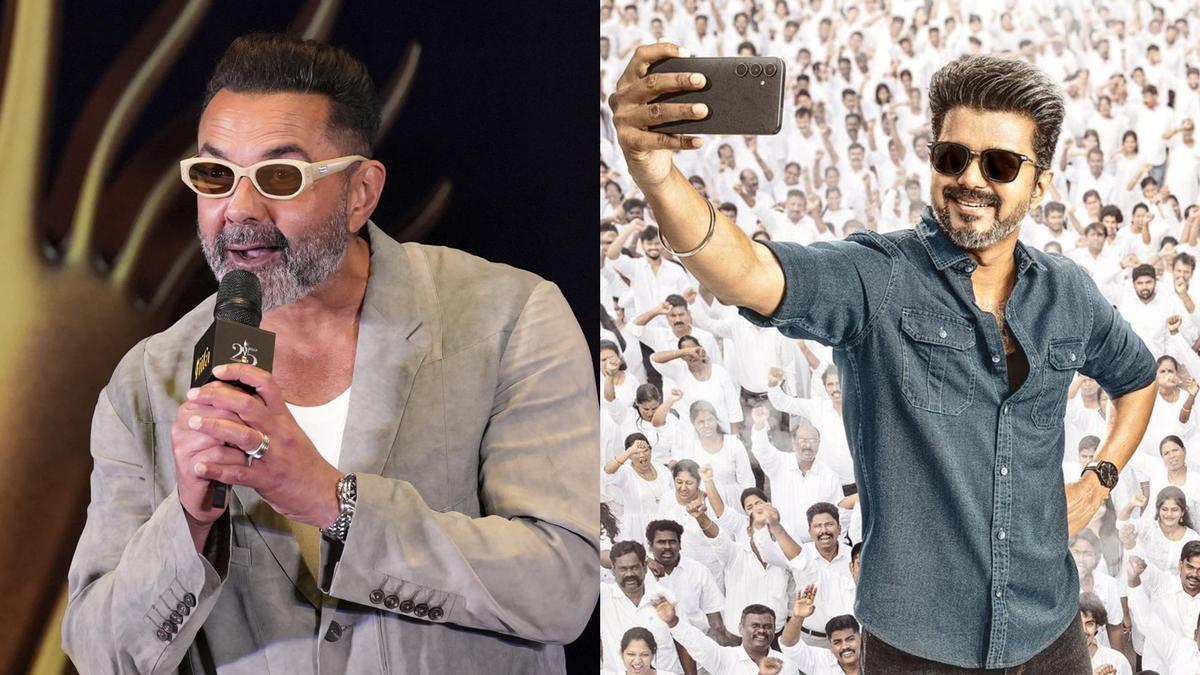
About an hour into the Telugu film “Buddy,” its lead actor Aditya Ram (Allu Sirish) wonders aloud why he often feels compelled to save others. This self-examination comes after several dramatic instances where he, as a pilot, takes control to avert potential disasters caused by a nervous air traffic control officer named Pallavi (Gayatri Bhardwaj). In another scene, he lends assistance to an air hostess and aspiring pilot (Prisha Rajesh Singh) who experiences a panic attack mid-flight. While these scenarios adhere to the stereotypical trope of a hero rescuing damsels in distress, the film’s self-aware acknowledgment of Aditya’s savior complex adds a redeeming layer. Such reflective moments are attempts by director Sam Anton to lift “Buddy,” an adaptation of the Tamil film “Teddy” directed by Shakti Soundar Rajan, above the usual fare. However, these promises peter out as the film settles into pandering to audience expectations.
One of the notable elements is how Sam Anton retains the essence of the original “Teddy” story—featuring a protagonist uncovering an organ harvesting racket and a heroine’s out-of-body experience in the form of a large teddy bear—while altering the surrounding narrative to add novelty. This approach could appeal even to those who have seen the original Tamil version, providing them with a fresh experience.
The budding romance between Aditya Ram and Pallavi, despite its clumsy start, manages to acquire a sense of intrigue as it develops. Their first encounter is portrayed in a somewhat silly manner, and it’s hard to believe that an inexperienced and nervous air traffic control officer would be left unmonitored without any repercussions for her near-catastrophic errors. However, mainstream cinema often asks viewers to suspend their logical reasoning, so audiences are expected to go along with the narrative flow. In another scene, the sudden collapse of a young woman on a bus, followed by her swift transport in a coincidentally present ambulance, raises no suspicion among the characters—a clear indication that the film does not invite scrutiny.
“Buddy” opens with an extended sequence that overly explains its own narrative.
. We are introduced to Arjun Kumar Varma (Ajmal), who heads a sinister organ trafficking syndicate in Hong Kong under the ironic corporate name Hope Well Foundation. His actions alone should be sufficient to establish his villainy, yet the film underscored his wicked nature by repeatedly stating that he is a ‘butcher,’ and not a doctor, filling the dialogue with fear-mongering details about identity theft.
Despite these narrative flaws, the film partially redeems itself with a compelling hospital sequence involving Pallavi and the arrival of Buddy, the ambulatory teddy bear. The inclusion of a child character unafraid of a sentient teddy brings a moment of light-heartedness to the story, although this character is quickly sidelined, leaving missed opportunities for further engaging interactions.
As the story progresses, Aditya’s mission to dismantle the organ trafficking ring provides ample space for intellectual duels with Arjun, who consistently stays a few steps ahead of his adversaries. Initially, their cat-and-mouse game is engaging, but it soon gets bogged down by unnecessary comedic interjections from characters portrayed by Ali and Mukesh Rishi, which disrupt the narrative’s intensity.
“Buddy” is also crammed with references to pop culture phenomena like “RRR,” “Kalki,” and a giant gun-toting teddy bear reminiscent of action films from recent years. Buddy’s protective jealousy over Prisha Rajesh Singh’s character adds a unique layer to an otherwise straightforward romance narrative.
As the climax approaches, featuring a prolonged and overstated mid-air confrontation, “Buddy” becomes a laborious watch. Yet, underneath its layers of misguided humor lies the potential for an appealing blend of romance and action. Ultimately, despite some redeeming qualities, the film struggles to maintain its promise, resulting in a viewing experience that feels more tedious than entertaining.
With a promising premise squandered by inconsistent execution, “Buddy” leaves one wishing that the moments of thoughtfulness and reflection had been more evenly spread throughout its runtime, rather than buried under a heap of clichés and forced humor.










